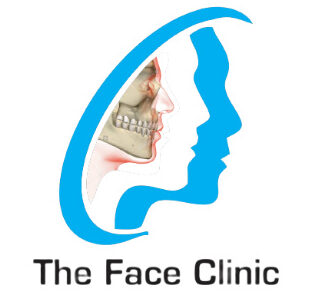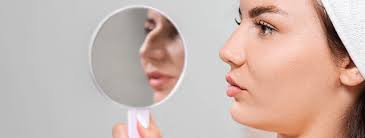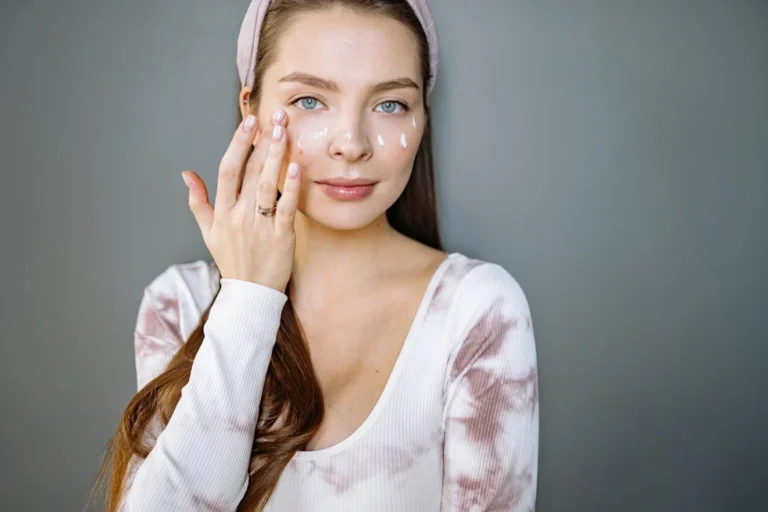Eczema on the face can be a frustrating and uncomfortable condition to deal with. Although it is not a a medical emergency or life-threatening ailment, eczema is a skin condition that can interfere with your happiness and quality of life.
This condition can range from mild to severe, and it can affect areas of your skin typically covered by clothes—or it can affect more visible parts of your body, such as your face or hands or both.

In this article, we will explore what eczema on the face is, its causes, triggers, and effective ways to manage and treat this condition. If you’re struggling with eczema on your face or looking to gain valuable insights into this skin condition, read on with us to discover essential information and helpful tips.
What is Eczema on Face?
Eczema is a type of dermatitis. Dermatitis is a word used to describe several skin irritations and rashes that can be immune-mediated, genetic, infectious, allergic or more. Common symptoms include dry skin, patches, redness and itching.
In the word dermatitis, derm means skin, and itis means inflammation. The word, as a whole, means “inflammation of the skin.”
Who are at risk?
Eczema can affect anyone at any age. Symptoms usually start in childhood and last into adulthood. You might be more at risk of having eczema if you have a family history or a diagnosis of:
- Dermatitis.
- Allergies.
- Hay fever.
- Asthma.

Causes of Eczema on face
Eczema on your face usually develops for the following reasons. It would be best to visit your dermatologist and sort out your main cause.
Several factors cause Eczema, including:
Weak immune system:
If you have Eczema, your immune system overreacts to small irritants or allergens (triggers) in your environment. When you contact a trigger, your immune system assumes that these small irritants are foreign invaders, like bacteria or viruses, that can harm your body. It can trigger inflammation, and autoantibodies can develop-this will cause an increase in inflammatory substances, resulting in more damage.
Genetic factors:
You’re more likely to have Eczema if there’s a familial history of Eczema or dermatitis. You’re also at a higher risk if there’s a history of asthma, hay fever and allergies. Common allergies include pollen, peanut, pet hair or foods that trigger an allergic reaction. You could also have a genetic mutation that causes your skin’s barrier function to not work.
Environmental factors:
A lot of your environment can irritate your skin. Some examples include exposure to smoke, air pollutants, harsh soaps and cleansers, fabrics such as wool, and some skin care products. Decreased humidity can cause your skin to become dry and itchy. Heat and high humidity can cause sweating, making your itchiness even worse.
Mental health
Your mental health could affect the health of your skin, which can cause a flare-up of eczema symptoms. If you have high cortisol levels due to stress, anxiety or depression, you may have more frequent flare-ups of eczema symptoms.
Skin barrier dysfunction
Individuals with eczema on the face often have a weakened skin barrier, which allows irritants and allergens to penetrate the skin more easily, leading to inflammation and flare-ups

Exaggerating triggers of eczema on face
The first step in treating Eczema on the face is to identify any triggers that might be causing or worsening symptoms.
Common triggers include
- Dry weather (low humidity).
- Makeup or skin care products.
- Soaps and detergents.
- Stress or your emotional well-being.
- Chemicals or preservatives found in cleansers and detergents
- Scented products
- External allergens such as pollens, dust, or dust mites
- Rough, scratchy material, like wool
- Food allergies
Treatment of eczema on face
Once you have identified any potential triggers, avoiding them as much as possible is important.
If your eczema is mild, you can keep it under control with good skincare practices and consistent moisturising. In many cases, however, medications are needed.
Good, gentle care of your skin is the most important aspect of treating facial eczema. Use only cosmetics that are fragrance-free and hypoallergenic (that is, are less likely to trigger allergies). Here are some things to keep in mind:
Good Hydration
If you have eczema, it’s essential to keep your skin hydrated. Creams and ointments will give your skin the most hydration. Also, look for products with emollient ingredients like ceramides. And make sure that they are dye-free and fragrance-free to reduce your chances of irritation.
Mild cleansing regularly
Soap can be harsh and dry on your skin, making eczema worse. Instead, consider a mild, non-soap cleanser. Mild cleansing regularly makes your skin healthy, clean and free from radicals that causes most of the infections. It also maintains good skin barrier system
Moisturize
Moisturizing is one of the most important parts of treating facial eczema. Regular moisturizers can help reduce dryness, itching, and inflammation. Choose a moisturizer specifically formulated for sensitive skin, and avoid any products containing fragrances. It is also important to avoid harsh skin treatments, such as exfoliating scrubs, which can be too abrasive for delicate facial skin.
Use luke warm water to wash
Hot showers can act as a trigger for eczema in some people. Wash your face using lukewarm water to reduce the risk of flare-ups from heat.
Avoid sunlight
If the sun triggers your flares, you may need to wear sunscreen. Generally, sensitive skin more easily tolerates zinc oxide or titanium dioxide products. When you’re out of the sun, wash your face and apply a moisturizer. Sunscreens are helpful but can be drying to your skin.
Don’t compromise on cosmetic products
Facial eczema doesn’t mean you can never wear makeup, but all products aren’t the same. Look for those that have hydrating ingredients like hyaluronic acid and shea butter. Steer clear of ingredients like parabens (preservatives), salicylic and glycolic acids, fragrances, and retinol, as they can worsen irritation
Phototherapy
Phototherapy is also an option for treating eczema, but it is less important than other options.
Topical Calcineurin Inhibitors:
Elidel and Protopic are medications commonly used to treat facial eczema. Since they are non-steroidal medications, they do not cause skin thinning.
OTC Hydrocortisone
Topical steroids are common treatments for the eczema of the body. But for delicate facial skin, you must use them with care.
Healthcare providers often prefer OTC 1% hydrocortisone cream, as it poses less risk of skin thinning and changes to skin colour than more potent creams.
Pro tips to Manage eczema on the face:
Here are a few pro tips for managing eczema.
Antihistamines and damp, cooling cloths placed over the itchy area sometimes help. There are a few more tips to avoid eczema if you are afraid of facing it shortly again.
- Wearing cotton and soft fabrics
- Avoiding rough, scratchy fibers and tight-fitting clothing
- Using a humidifier in dry or cold weather
- Using a mild soap or a non-soap cleanser when washing
- Taking extra precautions to prevent eczema flares in winter
- Air drying or gently patting the skin dry with a towel rather than rubbing the skin dry after bathing or taking a shower

Take home message
Eczema is an irritating disease that causes low morale and makes us afraid of changing environments. Regardless of its negative points, it is still treatable and avoidable. As the weather changes, one should have a regular visiting schedule with a dermatologist. Adopting preventive measures and avoidable tips to manage eczema can make life easy and happier.







One Comment
Comments are closed.